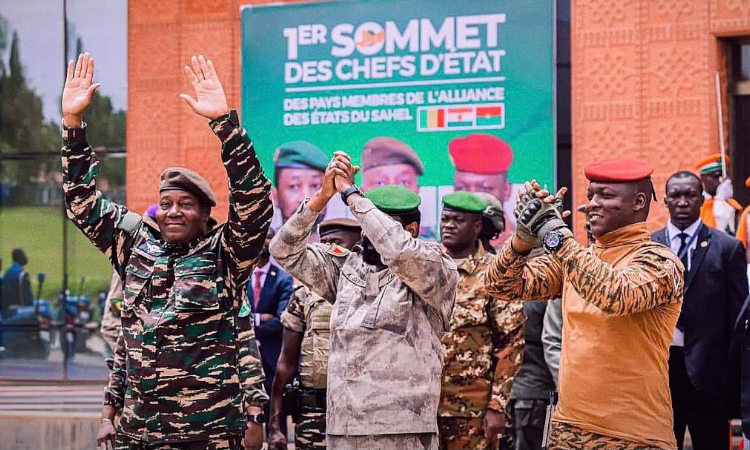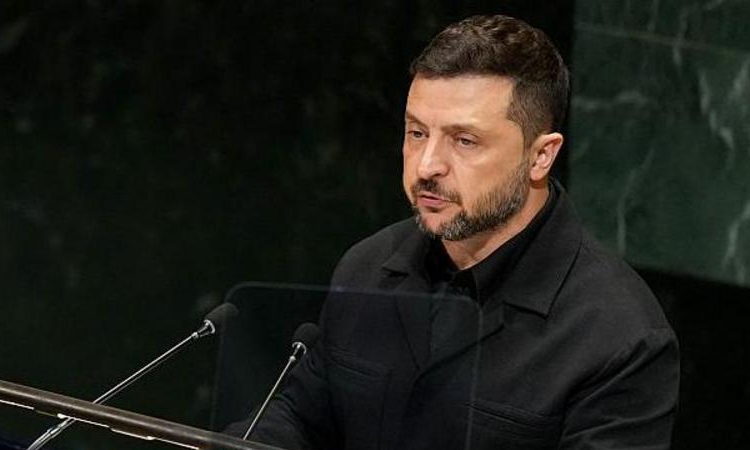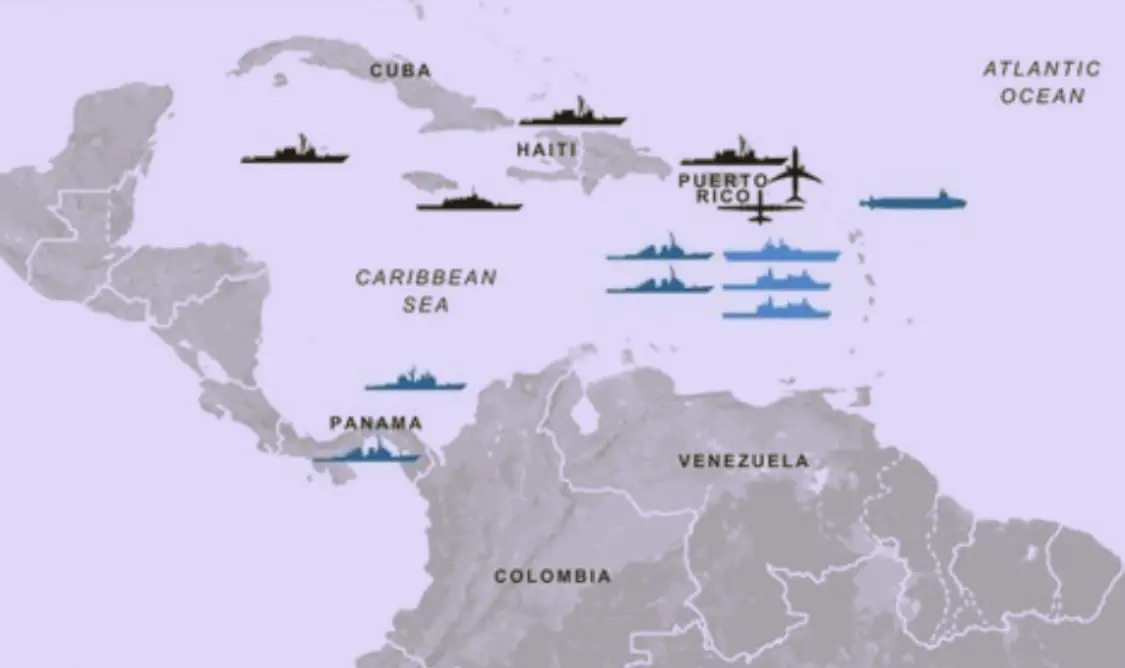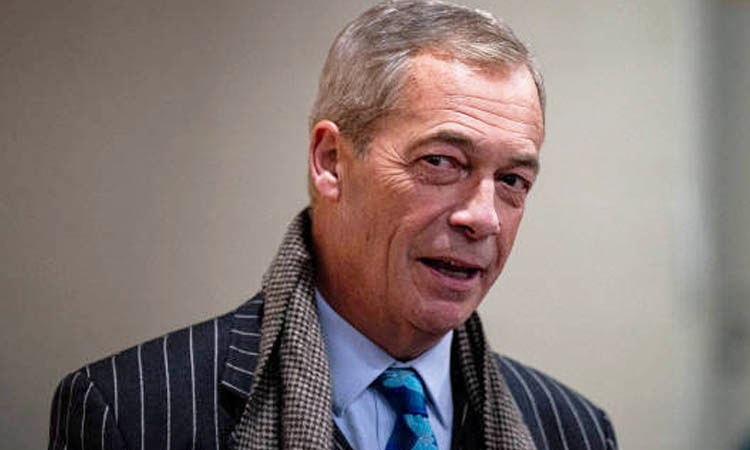The following talk was presented to a Southall seminar in west London on Saturday 28 June 2025.
*****
A new wave of revolution swept through west Africa at the beginning of this decade. Mali, Burkina Faso and Niger all broke free from French imperialist control and inspired Senegal and Chad likewise to turn their backs on the former colonial master.
Anti-French sentiment has been growing for years as a result of France’s military activities in all these countries. French military bases were supposedly established in order to ‘fight against terrorism’ – terrorism that became a huge problem across the region after the complete destruction of Libya by Nato forces led by France and the USA.
There is a lot to say about the new Sahel alliance, but today’s talk will focus on Burkina Faso and its leader Captain Ibrahim Traoré, who has emerged as the leading voice of this new wave of anti-imperialist independence. Traoré leans heavily on the legacy of his compatriot Thomas Sankara, one of the most popular socialist leaders in the world, who was killed by French imperialism because of his attempt to lead a sovereign and socialist government in Burkina Faso.
‘We will not pay the debt’ was the theme of one of Sankara’s most famous speeches, but it is also considered to be the speech that sealed his fatal destiny, as he was setting what the imperialists considered to be a very bad example for other African countries that were then, and are still now, kept underdeveloped under the burden of the debt owed to their former colonisers.
Captain Traoré became the leader of Burkina Faso after a military coup d’etat in September 2022 that was overwhelmingly supported by the population. He is very popular around the world and is an inspiration for many. Since he came to power, his government has prioritised pulling the Burkinabé people out of poverty and cutting dependence on foreign aid.
It has also kicked western military bases out of the country. Because of all this, Traoré is seen in Washington and Paris as a number one threat, and has been the target of many assassination attempts. Much of the information available online is highly speculative, but we can be sure that he has been giving nightmares to imperialism, whose minions are actively doing all in their power to take him down by using puppet states like Ivory Coast and Nigeria.
France does not tolerate any disruption to the neocolonial system it put in place after the so-called ‘independences’ of the 1960s. Unlike Britain, France practises a more direct (ie, less subtle) form of governance over its former colonies, whereby a puppet leader is put in charge of a country and surrounded with ‘advisors’, who work directly for the French secret services and hold key roles in the military and the civil administration.
This policy of direct tutelage is also known as FrancAfrique. The ‘leaders’ of the countries concerned are highly infantilised and unable to take any decision without French approval.
Burkina Faso has had many such presidents: Maurice Yaméogo, Sangoulé Lamizana and Blaise Compaoré, all of whom put French interests first and foremost. Thomas Sankara, inspired by Marxist revolutionary ideas, was the only one who put the interests of the Burkinabé people first. During the four years of his leadership, the country’s name was changed from the colonial Upper Volta to ‘Burkina Faso’, which means ‘Land of upright men’.
Neocolonial Upper Volta becomes liberated Land of the upright men
President Sankara travelled across the country listening to the stories of his people and engaging with them on possible solutions to the many ills facing the nation.
He launched ambitious reforms emphasising self-reliance and social justice. He oversaw massive vaccination and literacy campaigns, tree planting projects to combat desertification, and initiatives to advance women’s rights. Sankara’s administration also required officials, including himself, to open their finances to public scrutiny, and he cut luxury perks for the elite.
These radical policies won him the love and support of his people. Soon, his influence was felt far beyond Burkina Faso’s borders. The country became known across Africa for his revolutionary leadership and the great changes taking place. On the international front, he gave powerful speeches that resonated with young people across the African continent in search of honest and committed leaders for their own countries.
Sankara was not afraid to criticise the colonial powers and challenge the policies and institutions that keep Africa poor. This won him lots of enemies, but it also made him a notable figure on the global stage. One of the things that set Sankara apart from past Burkinabé leaders was his refusal to accept foreign aid.
He instead focused his attention on what he could control. His government spent heavily on agriculture, believing it to be the cornerstone of Burkina Faso’s development. He believed that the nation’s economic future depended on its ability to feed itself and improve the livelihood of its population. This bet paid off. Burkina Faso’s agricultural revolution led to a 75 percent increase in cereal production between 1983 and 1986.
But it was on the international stage that Sankara really threatened former colonial powers. He was wary of foreign aid coming with strings attached and consistently refused to seek assistance from the International Monetary Fund (IMF), fearing that its conditions would undermine his revolutionary goals.
Sankara’s foreign policy was characterised by a strong commitment to Pan-Africanism. This stance earned Burkina Faso respect and new allies, but also generated tensions with western powers and conservative African governments, especially those with close ties to France.
Not everyone was happy to see Sankara ride so high with so much love and affection, both at home and abroad. Some traditional authorities, middle-class professionals and external powers, notably France and Ivory Coast, who felt threatened by Sankara’s rhetoric and alignment with socialist states, soon began to plot against him.
New leader develops in the ashes of the Burkinabé revolution
“Traoré was born shortly after the assassination of Thomas Sankara by [his former comrade turned traitor] Blaise Compaoré in 1987, and he grew up under the very long and corrupt years of the Compaoré regime.
“After his coup d’etat, Compaoré had been quick to reverse all the gains of the Sankara era. He went back to business as usual with French imperialism. He brought back the old political order and comprador elite; his government started cracking down on dissent and political rivals were arrested and eliminated.
“He quickly made a rapprochement with the IMF and brought the country back under the shackles of debt.
“He changed the constitution and organised elections that he won easily – having suppressed all opposition. Under his rule, life became more and more difficult for the Burkinabé people.
“Fast forward to 2009: Ibrahim Traoré started his military career and enlisted in the Burkina Faso army; he graduated as a second lieutenant around 2012 and received specialised training. During those years, a lot of unrest and uprisings shook Burkina Faso in protest against the corrupt regime of Compaoré.
“When, in 2011, a high school student named Justin Zongo died in custody, the riots against police brutality spread to the army, and soldiers mutinied in multiple barracks over unpaid housing allowances and low wages.
“Faced with protest from students and the military, Compaoré was forced to make concessions to maintain himself in power. The government increased soldiers’ pay, give bonuses to civil servants, lowered food prices, and promised justice for the student who had been killed.
“When, in 2014, his ruling party amended the constitution to remove term limits so that he could run for office again, massive protests erupted (thousands of civilians stormed the parliament to stop the vote). This time Compaoré did not manage to save himself. His government quickly collapsed; he resigned in October 2014 and fled to Ivory Coast.
“Power was assumed by two different military chiefs, General Honoré Traoré [no relation] and Lieutenant Colonel Isaac Zida, but neither of those leaders offered any real change to the Burkinabé people.
“In the meantime, Captain Ibrahim Traoré joined the United Nations peacekeeping mission in Mali as part of Burkina Faso’s contingent and got involved in the fight against islamic militants across the border.
“He was at the front line in the fight against terrorism. He served in northern Mali, and in 2018 he was among the soldiers honoured for their courage during major rebel attacks in the Timbuktu region. After that, he returned home and took part in counterinsurgency operations against terrorist groups acting in Burkina Faso.
“He saw action in hotspots like Djibo and participated in the 2019 Otapuanu offensive, a large-scale operation aimed at flushing out militants in the eastern part of the country. By 2020, Traoré had achieved the rank of captain at the age of 32. However, along with his promotion came growing frustration.
“His country was quickly falling apart before his very eyes, and there was little he could do about it.” (The man America fears the most – Ibrahim Traoré by Jude Bela, YouTube, 6 May 2025 )
In 2015, Burkina Faso elected Roch Marc Kaboré, a banker and former collaborator of Compaoré, as president. At the same time, islamic attacks on the country were intensifying and many army personnel were being killed, fuelling widespread public anger.
The Kaboré government quickly lost public confidence, having shown itself incapable of protecting the population from the increasing terrorist attacks. The army was undersupplied and outgunned by the mercenary terrorists, who had access to weapons stolen from Libya and the quiet backing and financial support of western imperialism.
In January 2022, the country witnessed a new coup, led by Lieutenant Colonel Paul Henri Damida, that ousted Kaboré. Captain Traoré was part of the Patriotic Movement for Safeguard and Restoration that backed the coup.
However, Damida, like Kaboré, was unable to stop the terrorist threat and more soldiers were dying on the frontline. Also like Kaboré, Damida had been a former close collaborator of Compaoré, and went so far as to invite the exile to return from Ivory Coast (despite having been found guilty by Burkina Faso courts of the murder of Thomas Sankara) to ‘advise’ the government on dealing with the terrorist threat.
It became clear that the influence of Blaise Compaoré and the FrancAfrique system he served were still looming over the country.
The second Burkinabé revolution
Captain Traoré, who had fought on the battlefield against terrorism, saw that Damida wasn’t the man needed to solve the country’s problems. On the 30 September 2022, he launched a second coup – swift and bloodless. He was elected president of the Patriotic Movement for Safeguard and Restoration’s council on 2 October 2022 and, one week later at the age of 34, he became Burkina Faso’s transitional president.
Since he was put at the head of the country, Traoré has been a strong voice against imperialism and corruption – denouncing western meddling in the region and labelling the terrorist attacks plaguing the country as imperialist attacks.
He has made strong moves that echo Thomas Sankara’s actions, like refusing to give himself a higher level of military security and renouncing his presidential salary.
Fighting against the security threat the country faces has been his number one priority. A nationwide campaign was launched to recruit civilian volunteers, his government’s goal being to defeat the insurgency outright, rather than to negotiate with the mercenaries. He publicly vowed to reconquer every inch of territory occupied by rebel militants, and stated there would be no talks with jihadist groups until they were militarily weakened to the point where they could not dictate terms.
He also made a strong alliance with Russia, which has led to the deployment of a Russian paramilitary brigade. In 2023, he, along with the leaders of Mali and Niger – countries that are suffering from the same terrorist problem – created the Alliance of Sahel States (AES), which established a joint military force to strengthen military coordination in the fight against terrorism.
Traoré’s government has prioritised economic measures such as the fight against mining-related fraud and corruption, the renegotiation of operating contracts, increased support for subsistence farming and the development of local industry. Other measures taken include:
- Cabinet approval for the construction of the country’s first state-run gold refinery so gold can be processed domestically rather than all the country’s ore being exported abroad.
- The establishment of a state-owned mining company and the requirement that foreign firms give it a 15 percent stake in all local operations and transfer skills to Burkinabé people.
- The initiation of the process of nationalising gold mines owned by foreign companies.
- Encouragement for the diversification of economic partnerships, particularly with emerging economies, on the basis of equality and mutual respect.
- The rehabilitation of destroyed road and energy infrastructure.
- The stimulation of local entrepreneurship, notably through support funds for young people and women.
- The implementation of a policy of economic resilience to external shocks, particularly in times of sanctions or international crises.
It is also important to underline the economic measures taken by the Sahel alliance on a regional level. All three members of the alliance have withdrawn from the neocolonial Economic Community of West African States (Ecowas) and from its Franc CFA monetary system, and are now working towards the launch of a single, shared currency.
On a social level, Captain Traoré’s policies have brought about unprecedented (since the days of Sankara) patriotic mobilisation and social cohesion, particularly around territorial defence and national reconstruction, promoting intercommunity reconciliation and the return to their homes of many internally displaced persons.
In collaboration with local authorities, the government has relaunched basic social services such as healthcare, education and drinking water infrastructure.
The government has also placed youth at the heart of the national project to build a new Burkina, based on hard work, honour and integrity, besides supporting cultural, artistic and educational initiatives that foster the deepening of Burkinabé values.
Following an assassination attempt in April this year, solidarity protests were organised in many cities around the world, including London, Accra and Montego Bay, to show solidarity to Traoré and his government, whose actions are inspiring anti-imperialists and socialists across Africa and the world.













